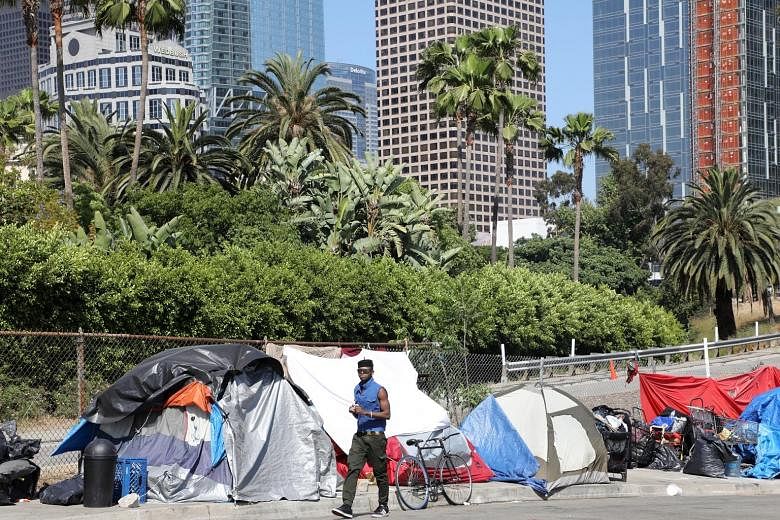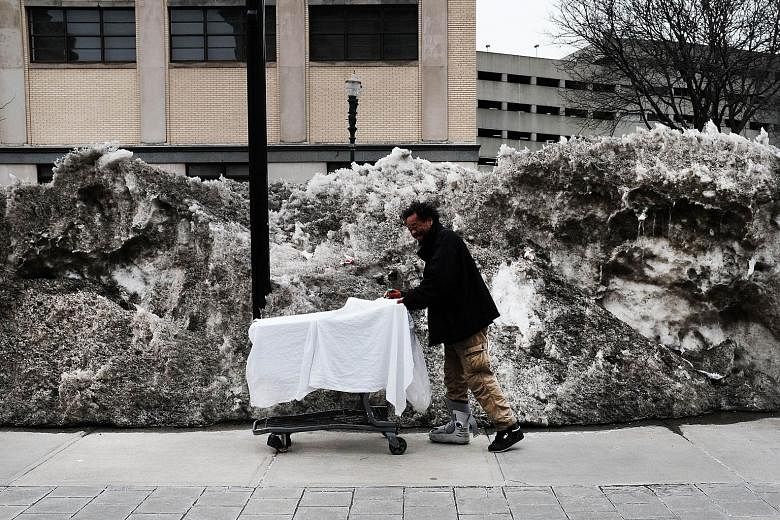A 20-page report by the United Nations on extreme poverty and human rights in the United States warns that America's poor are increasingly cut off from the democratic political process, undermining democracy itself.
"The principle of 'one person, one vote' applies in theory, but is increasingly far from reality," UN special rapporteur Philip Alston says in the report, due to be presented on June 21 to the UN Human Rights Council in Geneva.
"In the US, there is overt disenfranchisement of more than six million felons and ex-felons," writes the Australian professor, who is co-chair of the New York University School of Law's Centre for Human Rights and Global Justice.
This "predominantly affects black citizens since they are the ones whose conduct is often specifically targeted for criminalisation," he writes in the report.
The net result of gerrymandering of electoral districts to privilege particular groups of voters, and the imposition of artificial and unnecessary voter identification requirements, among other factors, is that "people living in poverty, minorities and other disfavoured groups are being systematically deprived of their right to vote", the report says.
The US has one of the lowest voter turnouts in elections in the developed world - 55.7 per cent in the 2016 presidential election.
-
AMERICA'S POOR
-
40 million
Americans living in poverty.
18.5 million
Those living in extreme poverty.
5.3 million
Number living in "Third World conditions of absolute poverty".
Underlying that, however, is a broad absence of party representation for low-income and working-class voters, the report says.
Only about 64 per cent of America's voting-age population was registered in 2016.
This contrasts sharply with other advanced countries. Canada and Britain are at 91 per cent, Sweden is at 96 per cent and Japan is at nearly 99 per cent.
Low voter turnout is also explained by "the perception that election outcomes will have no impact on the lives of poor people", the report says.
About 40 million Americans live in poverty, 18.5 million in extreme poverty, and 5.3 million in "Third World conditions of absolute poverty", the report says. At the bottom of the heap are indigenous people.
"Indigenous peoples, as a group, suffer disproportionately from multidimensional poverty and social exclusion. The 2016 poverty rate among American Indian and Alaska Native peoples was 26.2 per cent, the highest among all ethnic groups," the report said.
Indigenous peoples also have the highest unemployment rate of any ethnic group - 12 per cent in 2016, compared with the national average of 5.8 per cent.
The report also slams the current government's tax reforms, saying they disproportionately benefit corporations and the rich - further widening a wealth gap that will "ensure the United States remains the most unequal society in the developed world".
The report is the result of a 15-day working tour of the US last December, and draws on an array of sources, including government data. Much of the information is thus not new.
The International Monetary Fund, for instance, in a 2017 report predating the tax reform package, warned that the US economy was "delivering better living standards for only the few".
Household incomes are stagnating for a large share of the population, job opportunities are deteriorating, prospects for upward mobility are waning, and economic gains are increasingly accruing to those who are already wealthy, the IMF said in that report.
Separately, Stanford Centre on Poverty and Inequality researchers Charles Varner, Marybeth Mattingly and David Grusky wrote in a spring 2017 paper that the poor in America were "becoming a more deprived and destitute class, one that's disconnected from the economy and unable to meet basic needs".
But the full UN report on the poor in the US may have a bigger impact.
Prof Alston's preliminary report following his December field tour generated media interest for the unusual focus on the very real and growing problem of poverty, not just in a developing country, but in the richest country in the world.
The report makes some recommendations. Among them: decriminalise being poor, acknowledge the plight of the middle class, acknowledge the damaging consequences of extreme inequality, recognise the right to healthcare, and reform taxation to take the burden off the poor.


